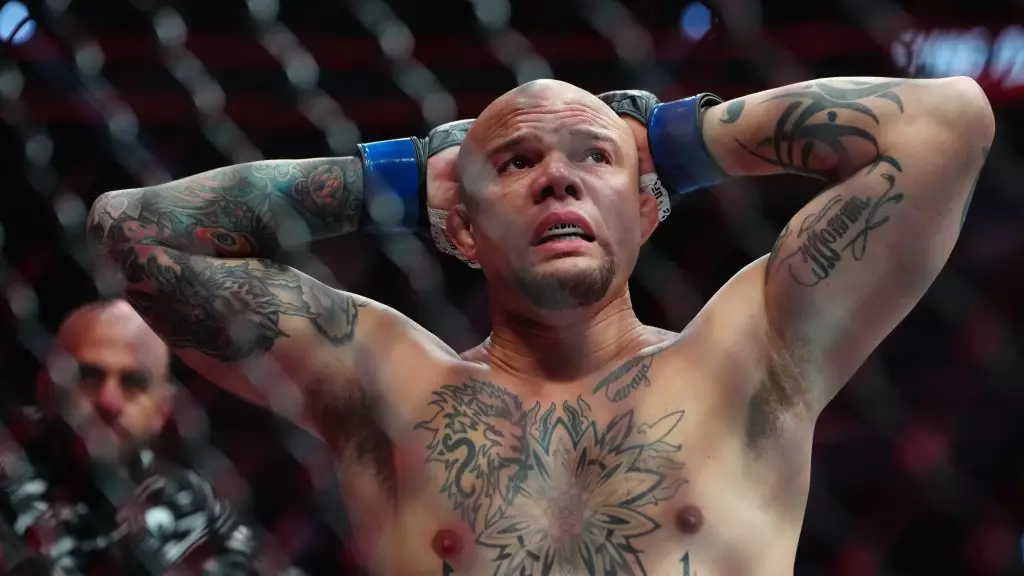In the wake of UFC 310, where Anthony Smith faced Dominick Reyes and suffered a second-round TKO, the mixed martial arts community is left contemplating the implications of this poignant moment in Smith’s career. A powerful fighter known for his resilience, Smith has experienced a tumultuous stretch recently, with five losses out of his last seven bouts. This decline raises significant questions regarding his future in the sport. What cannot be ignored, however, is the emotional weight he carried into the octagon following the recently painful loss of his longtime friend and coach, Scott Morton. A fighter’s mental state often profoundly influences performance, and Smith’s anguish was palpable, affecting not just him but also the fans and the overall atmosphere of the fight.
Smith’s behavior during the match, particularly when he dropped his hands and invited Reyes to hit him, was shocking and indicative of his inner struggles. Such actions hint at a fighter who might be wrestling with motivations beyond mere victory; they signal vulnerability and turmoil that extend outside the ring. Post-fight, Smith expressed uncertainty about his future and the potential for retirement. While he didn’t definitively announce his retirement, his reflections suggested a man at a crossroads—caught between honoring his late coach’s memory and understanding the physical and psychological toll that fighting takes on an athlete.
Michael Bisping, former champion and a respected voice in the MMA circuit, weighed in on Smith’s predicament, expressing empathy and concern. He articulated a belief that Smith’s last performance was not a reflection of his true capabilities. Bisping argued that achieving closure on the loss of a mentor doesn’t necessitate a fight, emphasizing that while fighting may provide a distraction, it may not lead to positive outcomes for Smith’s legacy. Instead, he speculated that, if Smith reflects on this fight, the embarrassment he may feel could reignite his competitive spirit and propel him toward a more fitting farewell.
Bisping’s comments resonate with the broader concern within MMA about athlete safety, particularly for veterans like Smith, who have given so much to the sport. There is a stark contrast between honoring a legacy and risking one’s health for the sake of competition. The advice from Bisping to prepare seriously if Smith chooses to fight again isn’t simply a nod to physical readiness; it’s a plea for mental fortitude and respect for the sport. The mention of retirement within the discourse is not simply about ending a career, but rather about preserving one’s health and legacy.
Ultimately, whether Anthony Smith chooses to fight again reflects not just personal ambitions but also a larger coaching ethos in professional sports, which increasingly prioritizes athlete welfare. Should he step back into the octagon, it will surely be with an awareness of not only his capabilities but also the legacy he wishes to leave behind. As fans and analysts speculate, the fight world looks on with hope that, regardless of his decision, Smith can find peace and purpose, honoring his past while navigating his future.

